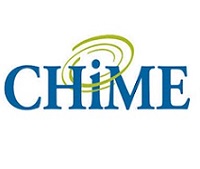 As the Centers for Medicare & Medicaid Services (CMS) advances alternative payment models for physicians, the College of Healthcare Information Management Executives (CHIME) urged policymakers to streamline the Meaningful Use program and reduce the reporting burden on providers by better aligning quality measures.
As the Centers for Medicare & Medicaid Services (CMS) advances alternative payment models for physicians, the College of Healthcare Information Management Executives (CHIME) urged policymakers to streamline the Meaningful Use program and reduce the reporting burden on providers by better aligning quality measures.
CHIME supports transitioning eligible professional to a more flexible Meaningful Use compliance model, shifting away from the current pass/fail construct and finding physicians successful if they meet 75 percent or more of the requirements. Eligible hospitals should also be moved off of the existing all-or-nothing approach, CHIME Board Chair Charles Christian and CHIME CEO and President Russell Branzell noted in a letter to CMS Acting Administrator Andy Slavitt. CHIME’s comments were in reply to a request for information (RFI) from the agency regarding implementation of the new Merit-Based Incentive Payment System and implementation of alternative payment models for physicians. The new payment system, referred to as MIPS, was enacted earlier this year as part of the Medicare Access and CHIP Reauthorization Act of 2015, which did away with the troubled sustainable growth rate used to determine physician payment.
To fulfill Meaningful Use objectives, providers are required to meet multiple measures and objectives. With limited exception, failure to hit any of the regulatory thresholds is deemed a failure and puts the provider at risk of a financial penalties. In its RFI, CMS indicated a willingness to move away from pass/fail and adopt a weighted approach for physicians. CHIME supports such a move, but believes it should apply to hospitals as well.
“We have previously advocated for the removal of the pass/fail methodology of the Meaningful Use program,” Christian and Branzell wrote, noting that the pass/fail methodology often pulls resources away from other critical areas, including pursuing interoperability and adopting other solutions that can advance patient care.
In its letter, CHIME also encouraged CMS to reduce the reporting burden by eliminating redundant measures and data collection requirements.
“Many CHIME members submit more than 20 reports across federal, state and private sector program for various clinical quality measures each month. Hours of work and expertise are required to comply with these reporting demands and such burdens are exacerbated by a lack of technical harmonization,” Christian and Branzell wrote. “The goal should be to eliminate duplicative quality measures and reporting requirements.”
For a copy of CHIME’s letter, click here.
About CHIME
The College of Healthcare Information Management Executives (CHIME) is an executive organization dedicated to serving chief information officers and other senior healthcare IT leaders. With more than 1,700 CIO members and over 150 healthcare IT vendors and professional services firms, CHIME provides a highly interactive, trusted environment enabling senior professional and industry leaders to collaborate; exchange best practices; address professional development needs; and advocate the effective use of information management to improve the health and healthcare in the communities they serve. For more information, please visit chimecentral.org.
